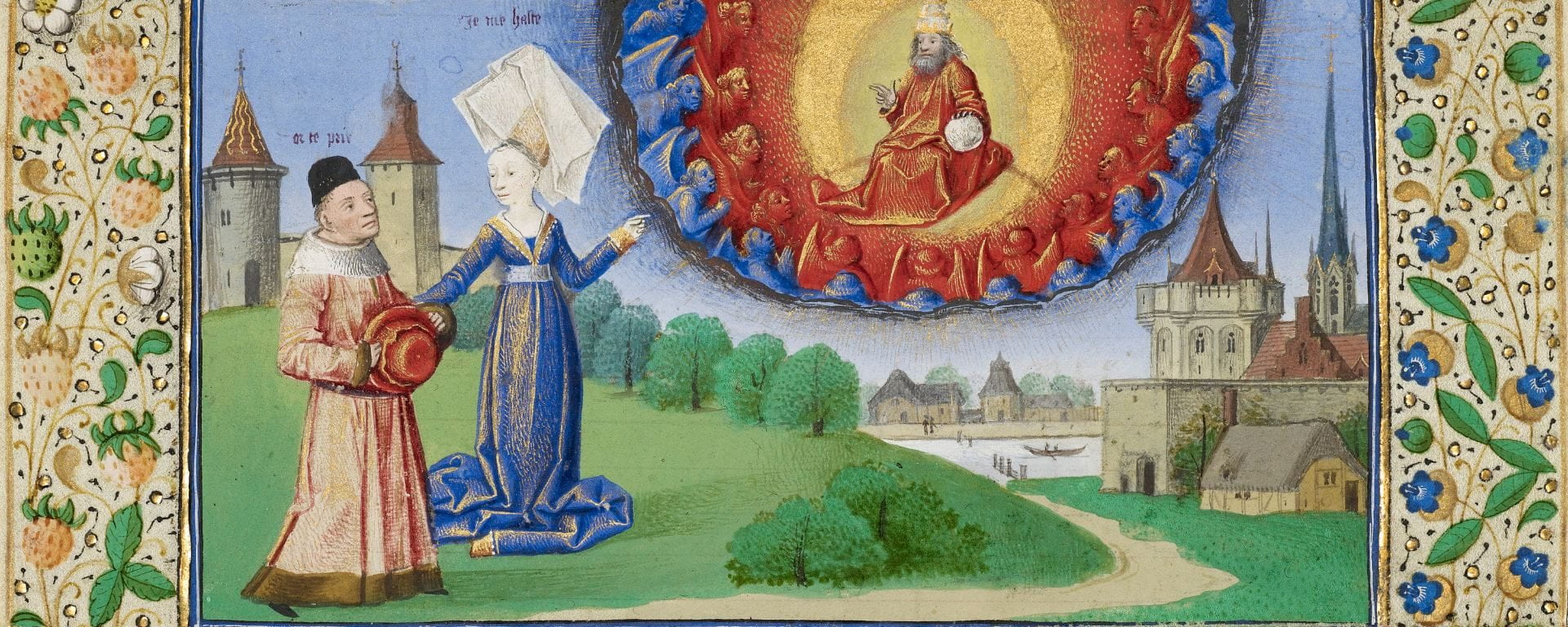Boethius and the Notion of Duality
By Ann Rayburn, Julia Liu, Wren McMillan
In discussing the depiction of women in Boethius’ The Consolation of Philosophy, we found that the main women character, Lady Philosophy, seems to embody a sense of duality. On one hand, we can see that in the Consolation, Lady Philosophy assumes the role of consoling Boethius. We see her as “in a gesture of gentle efficiency, she gathered the skirt of her dress so that with its fabric she could dry the tears from my eyes” (6). There is a gentleness and tenderness with the movement that comes with her femininity, and the emphasis on the fabric of the dress reminds us again of the tenderness. On the other hand, Lady Philosophy is also depicted as an authoritative figure. The first time Boethius sees her, he writes that “when there was a presence of which I gradually became aware looming over my head, the figure of a woman whose looked filled me with awe. Her burning gaze was indescribably penetrating, unlike that of anyone I have ever met…” (2-3). His immediate awareness of her presence and her penetrating gaze establishes Lady Philosophy as an authoritative figure.
In addition to the duality in Lady Philosophy’s character, there is also a duality in her role. She is here as a consolation, but while consolation is usually thought of in terms of company and sentiments, she provides consolation through reason. We see her chasing away the muses when she enters. Angrily, Lady Philosophy declares that “what we want is the fruits of reason, while all they have is the useless thorns of intemperate passion” (4). Why does Lady Philosophy resort to poetry then? The book is a combination of poetry and prose, so why does Lady Philosophy banish the muses but keep the form of poetry? Perhaps that sheds some light on Lady Philosophy’s role of duality. Instead of merely providing strict reasoning and logical deductions, Lady Philosophy advocates for a combination of reason and passion. She hates the “useless thorns of intemperate passion” (4) but becomes the new muse as she continues to inspire Boethius, bringing in passion which is combined with reasoning. The duality in the role that Lady Philosophy offers the real consolation for Boethius, as she is able to appeal both to reason and emotion. Lady Philosophy represents that we have to follow both our intellect and intuition in order not to be led astray by false thoughts.
At the beginning of Book II, we see a unassuming yet powerful description of Lady Philosophy which summarizes very well her role and character. “She was silent for quite a while, which was perhaps a show of modesty but in fact served to focus my attention so that I was waiting with particular concentration for what she might say next” (27). Here, Lady Philosophy shows modesty, which is a quality women are often required to portray, but her silence and modesty has a power that makes Boethius can’t help but focus his attention. It is in duality that Lady Philosophy possesses her power, by combining tenderness and authority, sentiments and reasoning.
Boethius. The Consolation of Philosophy. Translated by David R. Slavitt. Cambridge, MA: Harvard University Press, 2010.
Image: Philosophy Instructing Boethius on the Role of God by Coëtivy Master (Henri de Vulcop?). 1460-1470, the J. Paul Getty Museum.

Spot on with this write-up, I absolutely feel this amazing site needs much more
attention. I’ll probably be back again to see more, thanks for the advice!